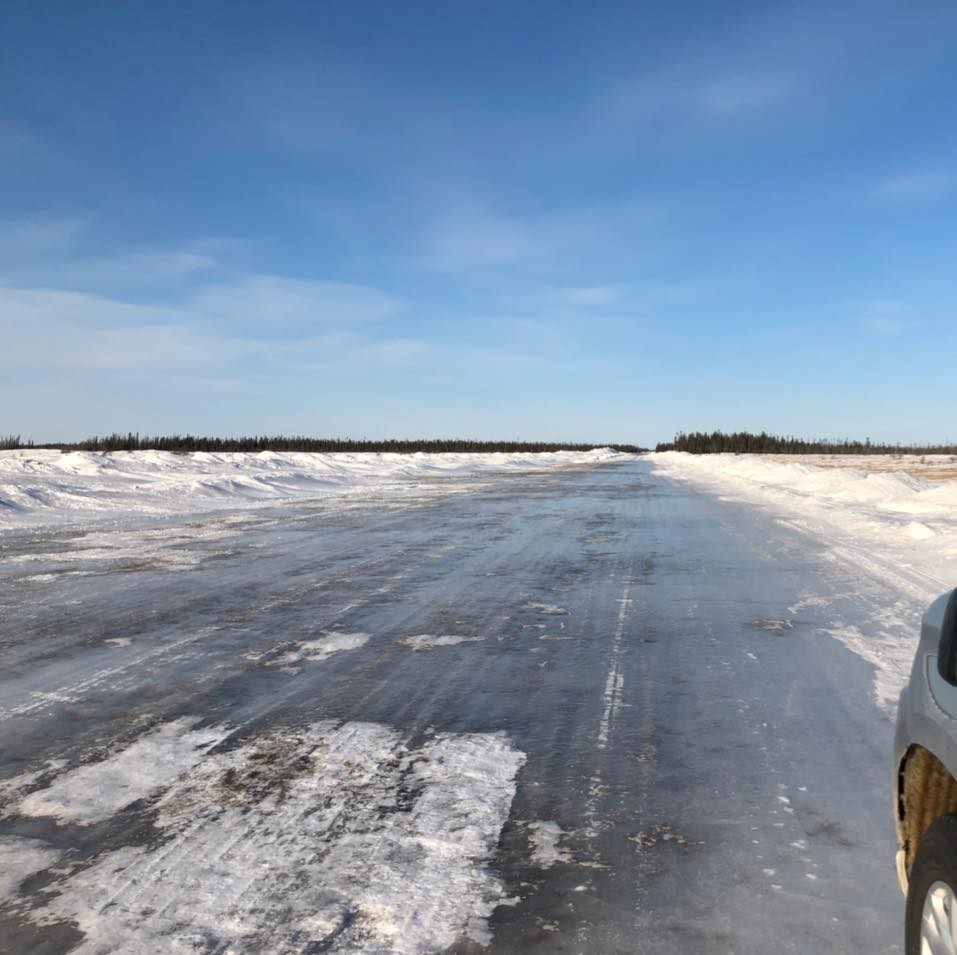Between the COVID-19 pandemic and warmer weather, it has been an unusual, challenging winter road season, says the president of Kimesskanemenow LP.
Monday, March 22, the James Bay Winter Road officially closed for the season.
The 311-kilometre road connects First Nation communities on the James Bay coast including Attawapiskat, Kashechewan, Fort Albany and Moosonee. A winter road that connects Moosonee to the Ontario highway system wasn’t built this season because of COVID-19 outbreak concerns.
An ice road between Moose Factory and Moosonee also closed March 26 at 5 p.m.
The James Bay Winter Road was partially opened in January with the entire road fully open to traffic for about a month, said Nancy Wood, president of Kimesskanemenow LP.
Throughout that time, there were a few days when the road had to be closed because of the weather.
The company usually aims to open the road to light traffic by mid-January and to heavy traffic by the first week of February.
“It was kind of an unusual winter,” Wood said. “Our contractors did an amazing job given that they had less funding than we would normally have towards the road and the challenges of working with masks and trying to social distance.”
The winter road is built and maintained on an annual basis.
It was challenging for trucks to bring fuel, construction material and groceries when communities went into lockdown because of COVID cases in the region, Wood said.
“We didn’t even get close to what we would normally get in for fuel, so it’s going to be a challenging year because it’s going to be either barged or flown in,” she said.
There were 1.17 million litres of gas ordered from Paytahpun Inc. and 970,000 litres delivered, so 200,000 litres weren’t delivered to the communities.
As for diesel fuel, 1.01 million litres were ordered and 732,350 litres delivered, so communities were short of 277,000 litres of diesel fuel, according to Wood.
Wood added that there are still housing construction materials in Moosonee that have to be delivered to Fort Albany and Kashechewan.
“My winter road co-ordinators did an inspection on Monday and they felt that it wasn’t safe for us to keep it officially open. If community members continue to use it after it’s officially closed, it’s at their risk at that point,” she said.
In past years, before Victor Mine's closure, DeBeers funded most of the winter road costs. The company also received funding from the province and the federal government.
This season, the budget for the road was $1.73 million. The company received $1.36 million in funding from Indigenous Services Canada and the Ontario Ministry of Energy, Northern Development and Mines.
“That’s approximately the same as last year but the season before, we had closer to $5 million. With DeBeers out of the picture, we’ve had to significantly cut the costs,” Wood said. “It’s unfortunate because the cost of fuel and the cost of labour doesn’t stay the same but it’s the reality of the funding that we have.”
The communities also received $612,8580 from Indigenous Services Canada for the four COVID-19 screening stations set up at the entrances to each of the communities. The stations were used to monitor who was going in and out of the communities for contact tracing, Wood said.



